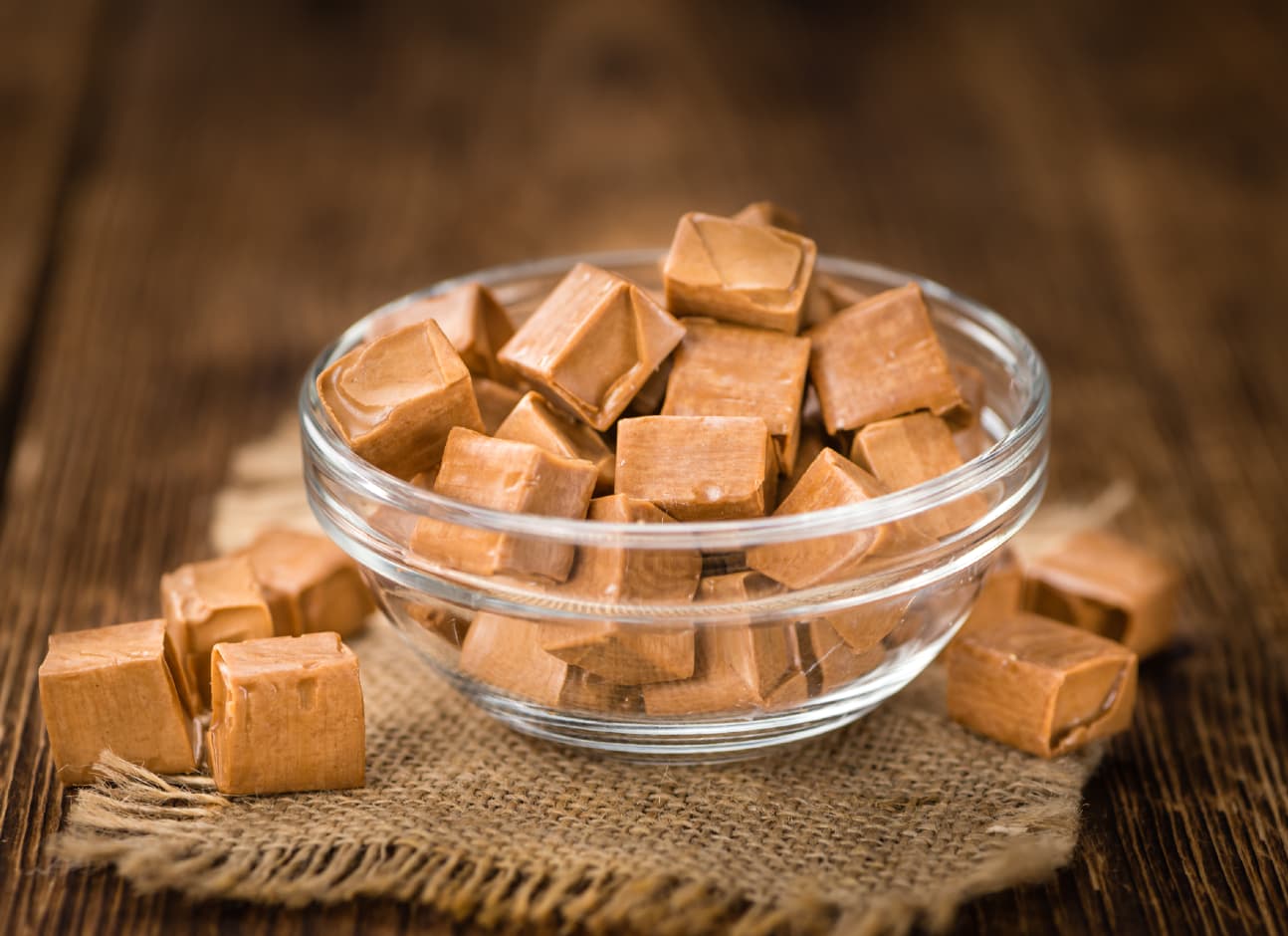As a responsible canine caregiver, you are undoubtedly concerned about ensuring the safety and well-being of your beloved furry companion. Inevitably, you may ponder whether or not it is acceptable to feed your dog certain human edibles, such as Butterscotch. The question arises: can dogs have Butterscotch? This comprehensive guide shall address this inquiry and equip you with all the pertinent information concerning Butterscotch and its potential effects on dogs.
What exactly is Butterscotch?
Butterscotch is a sweet treat made by heating butter and brown sugar. The mixture combines cream, vanilla, and salt to create a thick, rich sauce. Butterscotch is often used as a topping for desserts or as a flavoring in baked goods.
Can Dogs eat Butterscotch?
No, dogs should not eat Butterscotch. The main reason is that it contains high amounts of sugar, which can lead to weight gain and oral health problems in dogs. Furthermore, Butterscotch frequently contains artificial sweeteners like xylitol, which can be highly dangerous for dogs. Xylitol triggers a rapid insulin release in dogs, ending in hypoglycemia, seizures, and even liver failure.
Dangers of Butterscotch for Dogs
To provide further insights, here are some of the potential risks posed by Butterscotch for dogs:
Contain High Sugar Content: Butterscotch contains considerable amounts of sugar, which can induce weight gain and oral health issues in dogs.
Presence of Xylitol: Some brands of Butterscotch may contain xylitol, an artificial sweetener commonly used in sugar-free products. Even minute quantities of xylitol can severely threaten dogs, causing hypoglycemia, seizures, and liver damage.
Digestive Problems: The high sugar content in Butterscotch can lead to digestive problems in dogs, such as vomiting and diarrhea.
Pancreatitis: Dogs that consume high-fat foods such as Butterscotch are susceptible to pancreatitis, which is a condition that entails inflammation of the pancreas.
Choking Hazard: Butterscotch candies and hard sweets can pose a choking hazard to dogs, especially smaller breeds
Alternatives to Butterscotch for Dogs
Fortunately, if you wish to pamper your pooch with something sweet, several safe alternatives to Butterscotch are suitable for canine consumption. Here are a few dog-friendly sweets:
Fresh Fruit: Many dogs relish fresh fruits such as apples, bananas, and strawberries. These fruits are low in calories and high in vital vitamins and minerals.
Peanut Butter: Natural peanut butter is a healthy delicacy for dogs and can be used as a filling for kong or a topping for treats.
Carrots: Carrots are a low-calorie treat rich in fiber and vitamins. Many dogs enjoy the crunchiness of carrots.
Plain Popcorn: Unflavored and air-popped popcorn is a healthy snack for dogs. Just ensure that the popcorn is devoid of butter or salt
Conclusion
In conclusion, dogs should steer clear of Butterscotch. The high sugar content and the possible presence of xylitol render this confectionery unsuitable for canine consumption. Instead, consider treating your dog to one of the alternatives above. Always consult your veterinarian before introducing new foods into your dog’s diet, particularly if they have underlying health issues. At ModernVet Clinic, our experienced and knowledgeable staff are always happy to help your pet.
